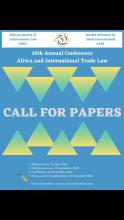Amaka Vanni already proffered answers to the foregoing nagging questions, and more, albeit within the broad conversation around pharmaceutical patent and access to essential medicines and health technology in the Global South. She undertook this task in her well-researched and exceptionally captivating monograph: Patent Games in the Global South: Pharmaceutical Patent Law Making in Brazil, India and Nigeria (Hart Publishing 2020). In the book, structured into 7 strong chapters, she critically unpacks, engages and beautifully links the role of states and non-states actors in international patent law-making with the realities of patent legislation and policy formulation, as well as pharmaceutical innovation and R&D in Brazil, India and Nigeria.


